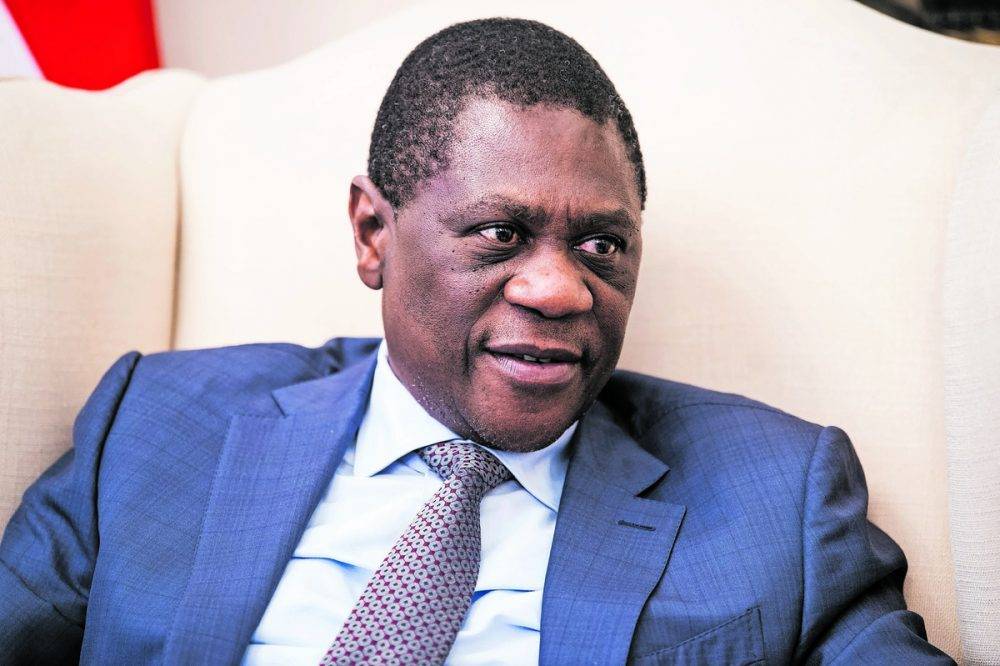(Graphic: John McCann/M&G)
The year 2024 marks 30 years of freedom and democracy, and 28 years since the Constitution was adopted. Next year will therefore be a significant milestone for our democracy — a year, hopefully, of reflection and renewal.
But, of course, we need not wait until April 2024 to begin the arduous work of reflection, evaluation and renewal of our democratic and constitutional commitments.
It has already become clear that aspects of our democracy don’t work the way they should, and we need to take proactive steps to fix what is not working.
The instability in municipalities has been ongoing since the 2016 and 2021 local government elections, which saw the emergence of a number of hung councils. As of May 2023, it was noted that there are 81 hung councils, a number that correlates almost exactly to the number of dysfunctional municipalities we have across the country.
With South Africa due to hold general elections in 2024, it is likely that this may ultimately affect national and provincial governments. It is therefore opportune to create space for a national dialogue on developing a framework for coalition governments, while we continue the focus on dealing with the immediate challenges in local government.
This framework must assist in ensuring that we uphold democracy and its emphasis on majority rule and honouring the will of the voters.
To this end, on 25 May, while responding to questions in parliament, I committed the government to convening a national dialogue on this issue, working with the minister of cooperative governance and traditional affairs and political parties in parliament.
In the main, the intention of the dialogue is to agree on the set of principles that will make coalitions work in the interest of the greater good and in a change-oriented manner.
These principles are going to be central in bringing about consensus on how coalition governments should function, to ensure that we continue to build a strong and stable democracy in our country.
 National interests: Deputy President Paul Mashatile has started a dialogue on coalition governments. Photo: Delwyn Verasamy
National interests: Deputy President Paul Mashatile has started a dialogue on coalition governments. Photo: Delwyn Verasamy
It is important to note at the outset that what we intend to have is a discussion and not a dictation. Therefore, nothing is cast in stone until we have all had our say, but nonetheless, the following six principles are deposited to guide the framework for the dialogue between and among parties:
- Putting the people first by making them the tenants of our value system in the formation of governments. In the spirit of Batho Pele, the measurement of the performance of coalitions must be about what we have done to improve the lives of the people.
- Coalition governments must be committed to combating poverty and deprivation, as well as building a growing and inclusive economy and must report regularly, by providing evidence on poverty reduction, growing the economy, and including the majority in the mainstream economy.
- Coalition governments must contribute toward building a prosperous society in which people have access to land for productive purposes and are meaningfully participating in the economy.
- Coalition governments must be committed to building a non-racial, non-sexist, democratic, united, and prosperous society.
- A coalition government should be bound together by a commitment to good governance, with no tolerance for corruption.
- The party that has won the largest votes should be allowed to lead the coalition, and the executive positions should be allocated proportionally to the votes obtained by the coalition partners.
Since at least 2016, people have been thinking and speaking about, and actively planning a way to handle the changing terrain that coalition politics will impose on our democracy.
This is particularly the case among opposition parties, but is not limited to them.
Various academic and research institutions have also provided insights on the importance of challenges posed by the lack of a framework for coalition governments.
Notable is the work produced by the Mapungubwe Institute for Strategic Reflection, the Friedrich-Ebert-Stiftung, the Dullah Omar Institute for Constitutional Law, Governance and Human Rights, to mention a few.
What is missing in the debate is a joint discussion among political parties, citizens based on their experiences in municipalities with coalition governments, as well as civil society including traditional leaders, faith leaders, labour and business.
The national dialogue is an attempt to close this gap, and have an agreement among all on a framework for coalition governments.
Last, the development of a coherent framework for coalition governments is nation-building work. The instability experienced at the local sphere of government is affecting the nation-building project.
If it is not responded to coherently, it will render the state unworkable and unable to deliver on its mandate.
Coalition governments have functioned better where “like-minded” parties work together to achieve national goals or where ideologically divergent ones decide to set aside their differences and work together to tackle a national crisis in the national interest.
This requires extraordinary leadership from all contending parties and forces, with a sense that the nation’s success is far greater than the narrow interests of any of them. There is a clear need for all of us to have a different type of dialogue, to move beyond rhetoric and to focus more on tangible outcomes in the short, medium, and longer term.
Despite the difficulties we face, this is one area in which we can and should work together to define and pursue a common goal. That goal is the efficacy and functionality of our democracy.